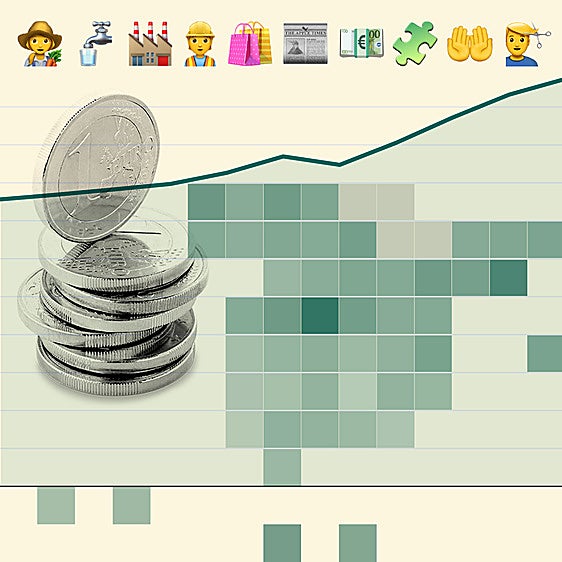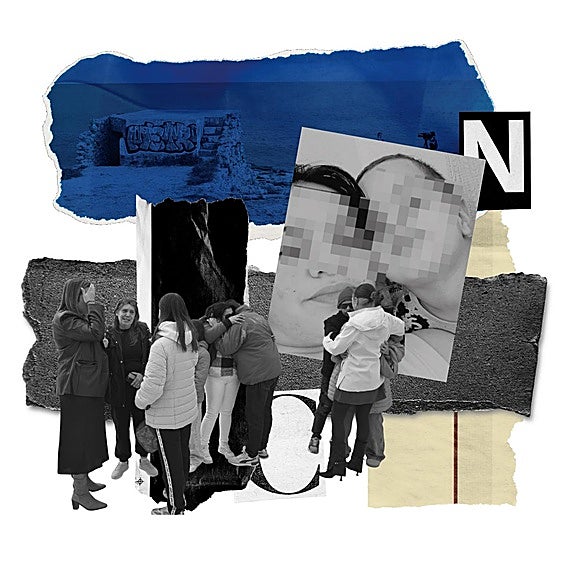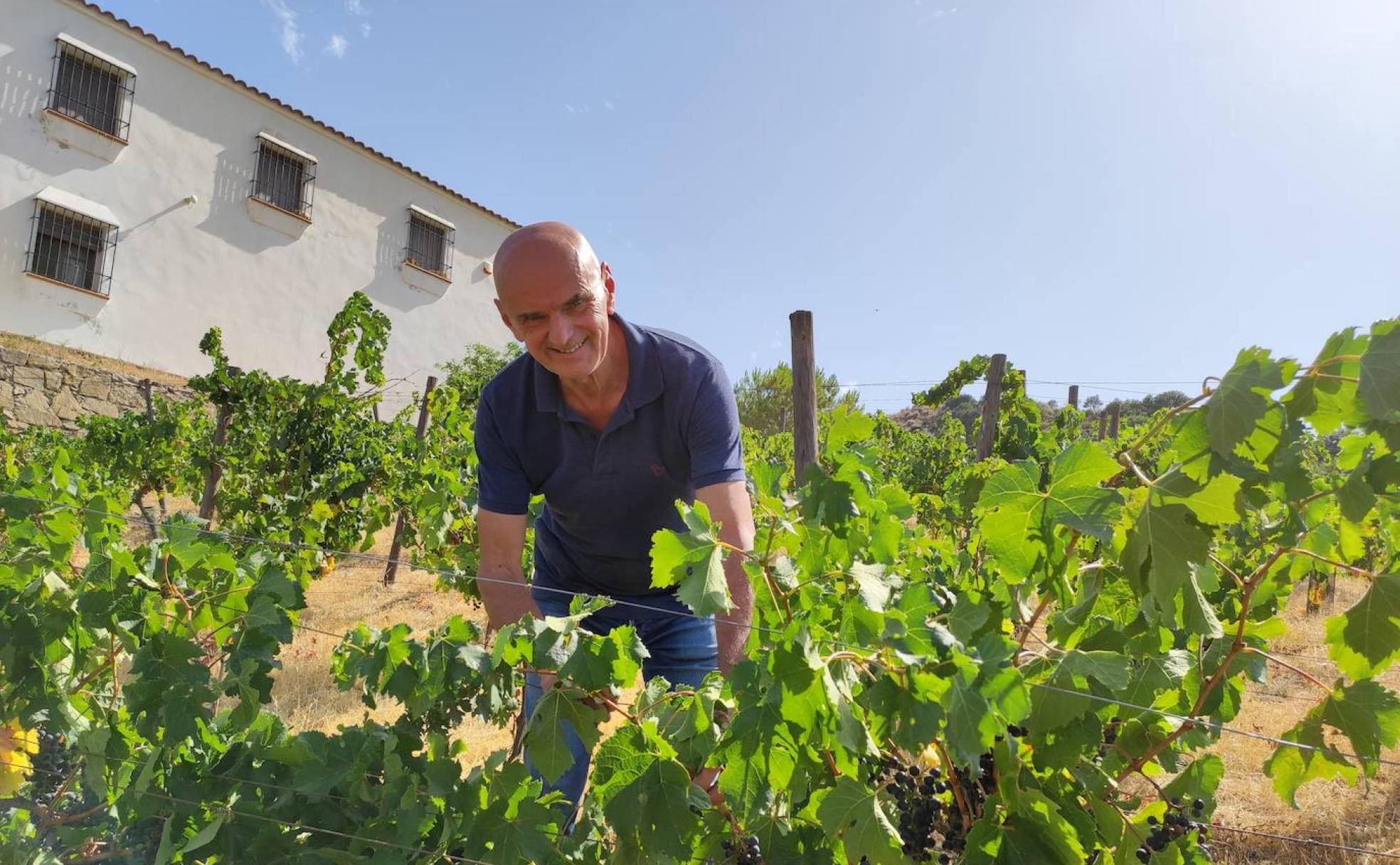From Antwerp engineering to Andalucía winemaking
Bruno Laureys and his wife Darifa found retirement a little boring so they bought a bodega and are now successful wine producers
Javier Almellones
Friday, 12 August 2022, 12:40
Just over a decade ago he was running an important international consultancy which worked with different northern European countries from its head office in Antwerp, Belgium. Now he spends his days among merlot, grenache and syrah grapes in one of the highest areas of the Sierra de Cártama.
Bruno Laureys says that between one point and the other, a number of coincidences occurred, although the character of this engineer, who is now in his seventies, must have had a lot to do with it as well. He is not afraid to step out of his comfort zone; in fact, he is comfortable facing even the most demanding challenges.
The place in which he chose to live, Malaga province, has also been a factor to take into account. In the past few years, even with the pandemic, "it has become very dynamic and prosperous again," he says.
A city of positive development
Bruno and Darifa moved to Spain from the bustling life of Antwerp, where there were no natural landscapes to be seen: "Everything is built-up there," they say.
Their visits to the bodega compensate for the lack of mountains and valleys in their life in Belgium. The climate was also an attraction for them. What they didn't expect was that they would end up in Malaga which today has become a benchmark for the technology and telecommunications sectors.
"It's going to be like the Silicon Valley of Europe soon, and I even think it is going to be a more important Mediterranean city than Barcelona," says Bruno enthusiastically.
He also says "it is essential to diversify beyond tourism, because Malaga has no industry".
Both he and his wife Darifa have witnessed the positive development of the city in the past decade, despite the pandemic.
"Malaga has improved in a lot of ways, and in part we have to thank the mayor, Francisco de la Torre, for that," he says.
It all started when, like many other Europeans, he decided to break the routine of living in a big city and embark on a different way of life. Many Belgians dream of retiring to southern France but Bruno and his wife Darifa, having visited the Côte D'Azur, didn't feel at home there.
The solution was waiting over 1,000 kilometres further south, closer to Morocco, where Darifa was born, in an area where the climate and the people were more to their taste.
Like many Europeans, they looked at Marbella first. They travelled down by car, with two suitcases and a laptop computer. The rest of their belongings were in storage in Antwerp, where they had also left their professional duties behind.
Marbella could be an ideal destination for people who wanted to rest after years dedicated to very demanding work. But that is not the case as far as Bruno is concerned.
"I admit that we didn't know Malaga at all, but when we visited it for the first time, from Marbella, we realised that was the place we wanted to be," he recalls.
They bought a house with wonderful views of the Mediterranean, in Miraflores del Palo. They are the only foreigners in their community, but that has been no obstacle to integrating. Nor was the language, which they were determined to learn in their first years in the city.
"My wife went to classes in El Palo, but I preferred to learn independently with the material they gave her," he explains.
Methodically, for an hour and a half a day, he learned Spanish and this has undoubtedly opened a lot of doors to playing an active part in the place where he lives. "We get on very well with our neighbours, we even go out and eat in restaurants together," he says, proudly.
But this restless engineer who is avid for knowledge, wanted to take a step further in his integration in Malaga. He knew that the rest of his life could not be contemplative. It was nice going to the beach, taking walks and enjoying the local gastronomy, but both he and Darifa had it in mind to do something more.
Coincidentally, this is where wine appeared on the scene. There is a big difference between being good consumers of wine and daring to have a go at making it, but they decided to bridge the gap when they visited Bodegas Sánchez Rosado in Viñas Viejas, an area of Cártama facing the valley of the two Alhauríns: Alhaurín de la Torre and Alhaurín el Grande.
When they learned that the winery was for sale they decided to buy it and start making their own wines. Now, nearly five years after buying the business, they produce four varieties: there are two reds (a light and elegant reserve and a surprising crianza), a white made with Muscat grapes from the Axarquía and a young and lively rosé.
"They have been selling very well, even without publicity, in the past few years," says Bruno, who exports part of the production to Belgium, the Netherlands and Denmark.
But as well as making wines at this bodega in Cártama, Bruno and Darifa hold demonstrations and tastings. In fact, wine tourism has become one of the fundamental pillars of the business in the past few years. Their language skills and passion for explaining what they do have brought many groups here, by prior appointment, to discover the secrets of their wines.
Bruno recognises that part of the credit must go to Rafael López, an enthusiastic oenologist, with whom he has had a good rapport from the start. "We're both engineers - he is an agronomist - and we understand each other perfectly," he says.
Nowadays one of the aspects of the business that Bruno likes most is the commercial side. "There is a market of over 2,500 restaurants to sell to and make our wines known," he says, happily.



